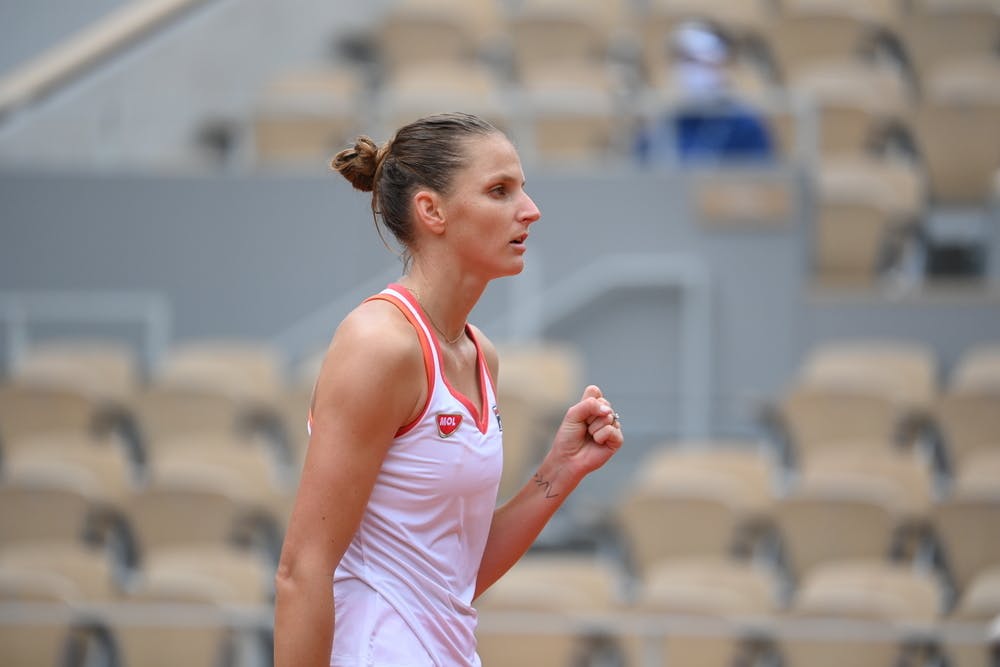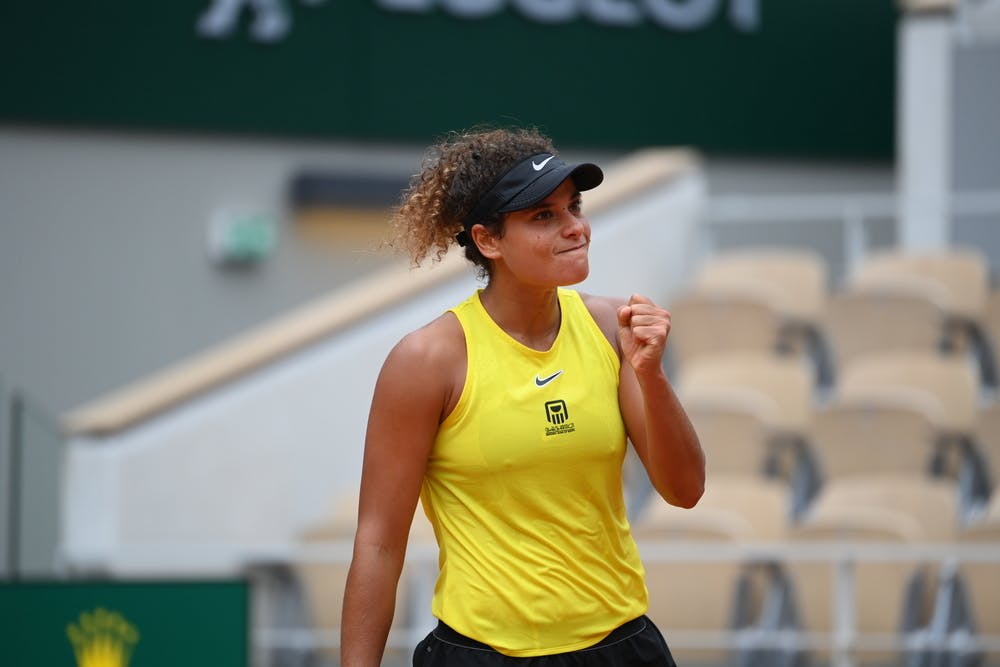Enter Roland-Garros under an injury cloud, drop the first set to a perpetually positive firebrand who is eager to make more history for her country, and then proceed to flip the script and steal away with a hard-earned round one victory.
Pliskova digs deep to fend off inspiring Egyptian Sherif
The second-seeded Czech had to raise her level significantly to fight off the history-making talent from Egypt.

All in a day’s work for No.2 seed Karolina Pliskova, the 2017 Roland-Garros semi-finalist who was forced to pull out of the final in Rome just over a week ago, due to a strained left thigh.
The relentless enthusiasm of qualifier Mayar Sherif, juxtaposed with the icy coolness of Pliskova, made for an interesting contrast in style in Tuesday’s first Court Philippe-Chatrier feature, and in the end it was the Czech’s big-match experience that enabled her to prevail over the world No.172 in three tense sets, 6-7(9), 6-2, 6-4.
A tip of the hat must go to Sherif, the first Egyptian woman to ever take her place in the main draw of a Grand Slam. The 24-year-old Cairo native rambled through qualifying - dropping just 14 games in the process - to make history for her country, and demonstrated in this encounter that she has the potential for a bright future on the red clay of Roland-Garros.
“To compete out in the stadium of Philippe Chatrier today it was an amazing feeling,” Sherif said. “I cannot describe it. It just gave me so much energy. I loved playing in the stadium. I loved having attention. I loved people being there, supporting. I enjoyed it so much.”

Pliskova gave Sherif credit on court after the match, saying: She played a great game. Especially on this surface, in these conditions - I think she’s very tough.”
The Czech world No.4 needed all of her resolve to stay positive after Sherif saved eight set points in the opening set - three in the tenth game and another five in the tiebreak - and moved ahead by taking the 20-point tiebreaker.
“I was just able to find a little bit better level than in the first set,” Pliskova told reporters in her post-match press conference. “Like never giving up, that's the only thing which I can do no matter how it goes, because there is always a chance.”
Pliskova, who was hard on herself in press after the match, chalked up her ability to avoid a massive upset to her veteran’s savoir faire.
“I just thought maybe the experience which I have, I have much more than she does,” she said. “But of course I still have to play something, because she was fighting and she was not giving me much. No matter how terrible was my level, I still somehow believed.”
The Czech’s victory should help ease doubt about the thigh injury that hindered her in Rome, but it will be something to keep an eye on as she moves forward in this draw.
Pliskova admitted that the injury was not fully healed.
“It was okay,” she said. “I was not really thinking about it at all. It's not 100 per cent, but it's okay. I think nobody is really 100 per cent here.”
Next up for Pliskova, an encounter with 2017 champion Jelena Ostapenko, who is unseeded, in the second round.
“With Jelena, we had some good matches, some strange matches,” said Pliskova. “I think she's a lot up and down but for sure she can just play well. From the baseline she can just really hit the ball. She can make a lot of winners, but also a lot of mistakes.
“So let's see which conditions we will have on Thursday. Let's see how my level will be.”
Sherif, a physical phenom that throws every ounce of her being into her heavy topspin groundstrokes and twisting kick serves, kept Pliskova off balance with a steady array of drop shots and high-bounding drives all day. Her biggest opportunity to claim the upset went begging in the seventh game of the third set, however, as Pliskova claimed the critical break when she converted her sixth break point of the game.
“The pressure for me was to break that barrier to beat her, because it's either at the important moments you kill or you get killed,” Sherif said. “She did it in the third set, and that was the tough moment.”
 ROLAND-GARROS
18 May - 7 June 2026
ROLAND-GARROS
18 May - 7 June 2026

